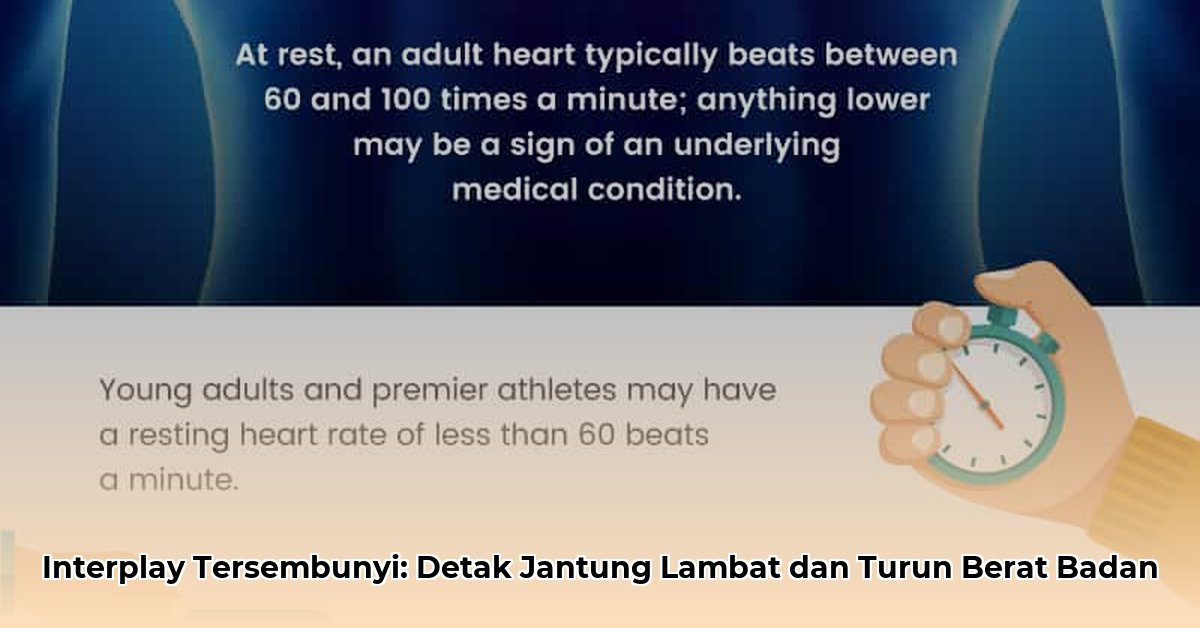
Understanding the Relationship Between Bradycardia and Weight Loss
Bradycardia, characterized by a heart rate below 60 beats per minute, is a condition that can arise from weight loss. While shedding excess weight can be beneficial, it’s important to understand the potential risks associated with bradycardia and its impact on overall health.
Causes of Bradycardia During Weight Loss
Rapid weight loss can alter the electrical impulses in the heart, leading to a decrease in heart rate. This can be caused by:
- Reduced Heart Muscle Mass: Weight loss can result in the heart muscle shrinking, which can lead to a slower heart rate.
- Electrolyte Imbalances: Electrolytes are minerals that play a crucial role in heart function. Weight loss can deplete levels of electrolytes like potassium and magnesium, disrupting heart rhythm and potentially causing bradycardia.
- Hormonal Changes: Weight loss can affect hormone levels, which can also influence heart rate regulation.
Impact of Bradycardia on Weight Loss
In addition to being a potential symptom of weight loss, bradycardia can also impact weight loss efforts. A slower heart rate can reduce blood flow to muscles, hindering their ability to burn fat effectively.
Medical Evaluation and Monitoring
If you experience any symptoms of bradycardia, such as dizziness, lightheadedness, or fainting, while losing weight, it’s crucial to seek medical evaluation. A healthcare professional can determine the underlying cause of your bradycardia, assess its severity, and recommend appropriate treatment options.
Risks and Consequences of Bradycardia
Left untreated, bradycardia can lead to serious health complications, including:
- Heart failure
- Stroke
- Cardiac arrest
Treatment Options for Bradycardia
The treatment for bradycardia depends on the underlying cause. It may involve:
- Lifestyle Modifications: Simple lifestyle adjustments, such as increasing fluid intake or adopting a balanced diet, can sometimes address bradycardia.
- Medications: Beta-blockers and other medications can help regulate heart rate.
- Pacemakers: In severe cases, a pacemaker may be implanted to stimulate the heart and maintain a healthy rhythm.
Preventing Bradycardia
To minimize the risk of bradycardia during weight loss, [include a link to a relevant article on healthy weight loss]:
- Maintain a healthy weight.
- Exercise regularly to strengthen your heart muscle.
- Avoid excessive dieting or restrictive eating disorders.
- Seek medical advice before beginning any weight loss program or if you experience symptoms of bradycardia.
Bradycardia in Eating Disorders
Bradycardia is a common symptom in individuals with eating disorders, particularly anorexia nervosa. Extreme weight loss and malnutrition can lead to electrolyte imbalances and cardiac muscle loss, contributing to bradycardia. Severe bradycardia in eating disorders can require hospitalization.
Conclusion
Understanding the relationship between bradycardia and weight loss is essential for making informed decisions about your health. While weight loss can be beneficial, prioritizing overall well-being is paramount. By maintaining a healthy weight, eating a balanced diet, and seeking medical advice when necessary, you can minimize the risks associated with bradycardia and enjoy the benefits of weight loss safely.